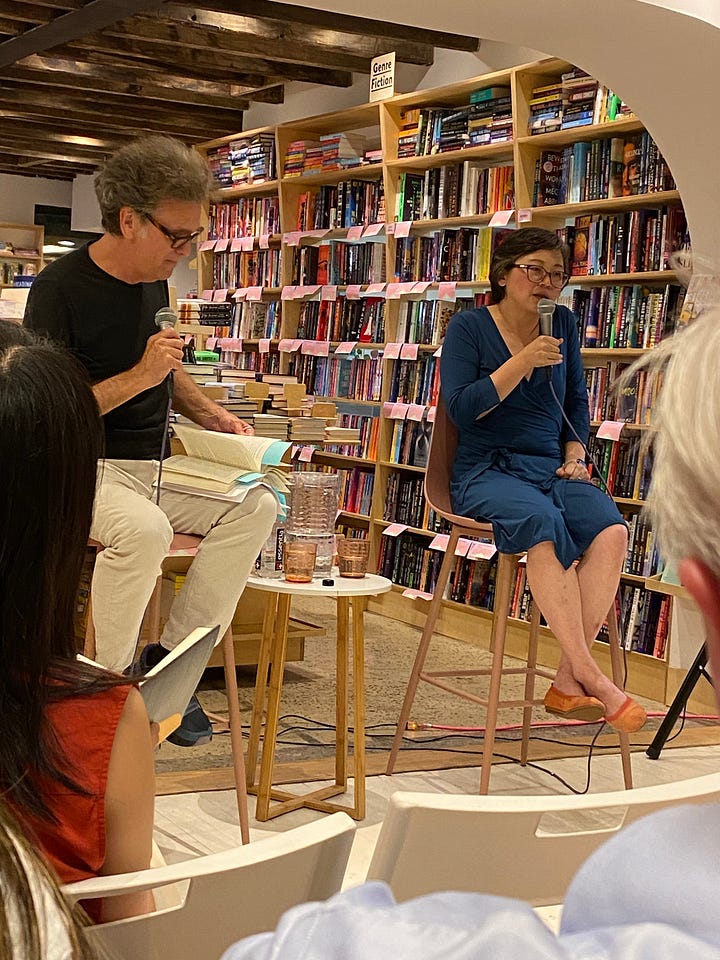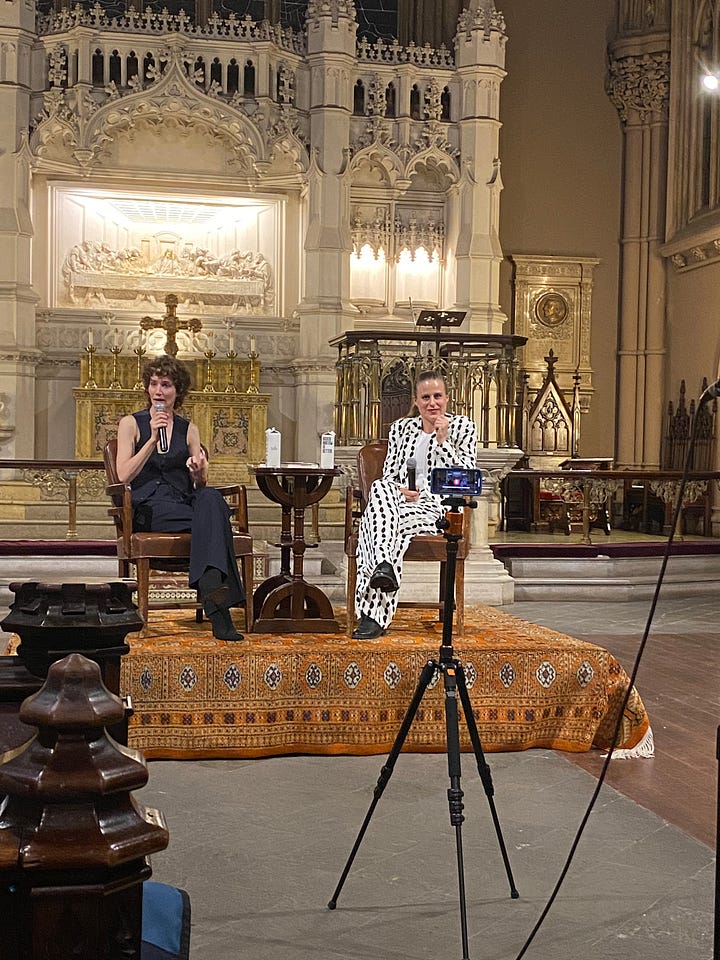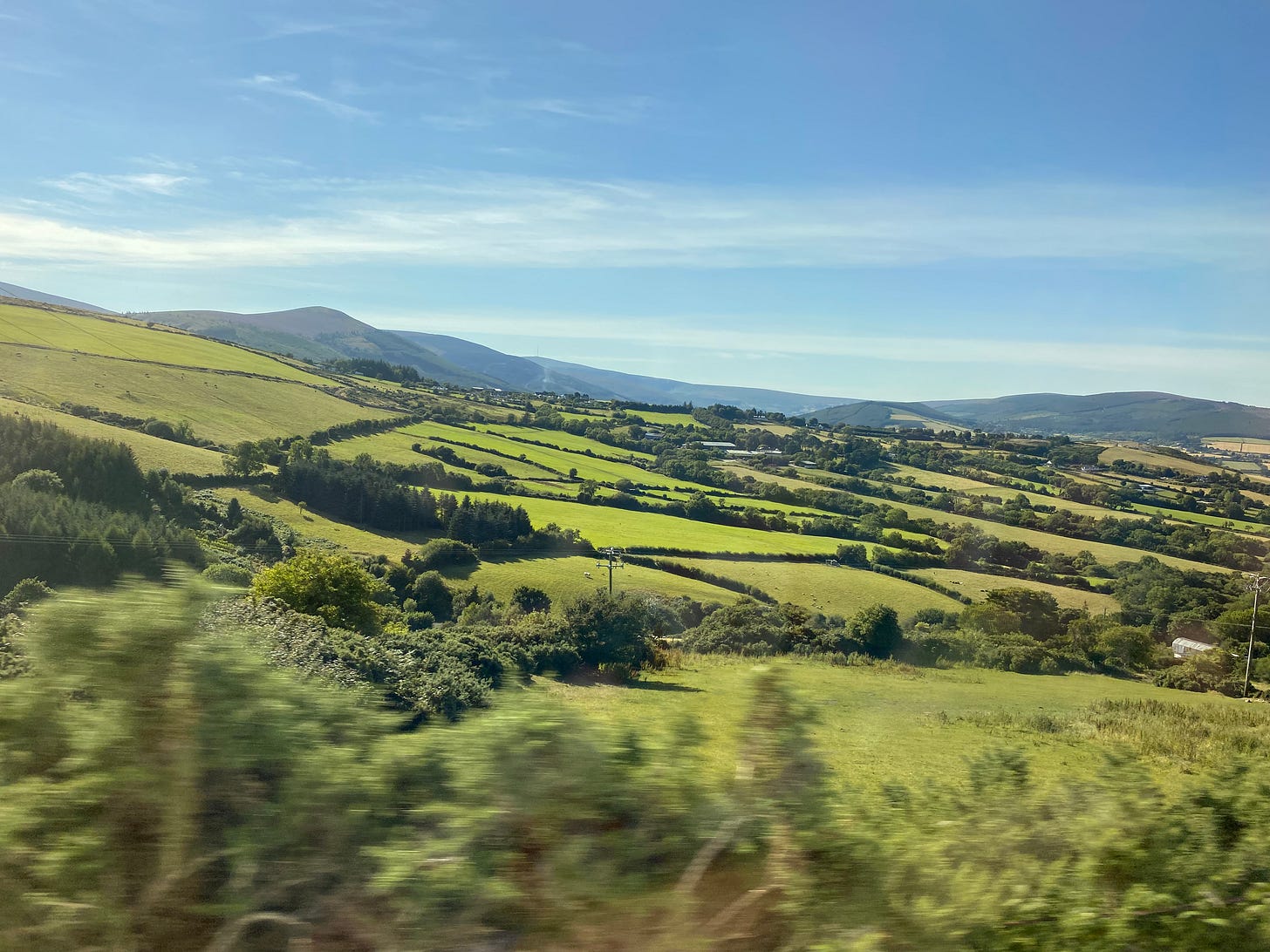Last week, I had the chance to see Yiyun Li in conversation with David Means at Books Are Magic in Brooklyn as Yiyun launched her new collection, Wednesday’s Child. (Watch the conversation here.) “I am a plotless writer,” Yiyun said. She believes that she engages her readers by appealing to their curiosity, to “their questioning minds.” She read out loud the last paragraphs of a few stories from the collection. Someone asked her why she did that, wouldn’t she be worried that the stories would be spoiled. No, she said, “the endings are not meant to spoil you. The stories don’t depend on the ending.” (I love how she responded—in the moment!— by playing with the word “spoil.”) The pleasure is, indeed, in the reading itself. In engaging with the text, with the characters, with the brilliant mind of the writer.
A few days later, I happened upon an article from 2022 in The New Yorker about Margaret Wise Brown. I didn’t know anything about her until I read the article, and I was fascinated to learn her story. Her children’s books represented a major shift in children’s literature, away from moralistic tales and towards a more modern way of storytelling. She attended Bank Street, where she studied under the founder of Bank Street, Lucy Sprague Mitchell. Mitchell believed in using social science research to reform early childhood classrooms and, by extension, children’s literature. She published a book, called The Here and Now Manifesto, which argued that children’s literature should focus on the familiar, on the known. Not witches who live in cottages in the woods.
Brown took this all to heart; Goodnight Moon, a book I loved as a child and loved as a parent for its quietness and its poetic tone, makes so much more sense to me now, knowing how it came to be. When Brown was in college, she told a professor that “she hated writing stories ‘with plots’.” She said that some of the children’s stories that she wrote were actually penned by children, that she simply listened and wrote down what they said.
When The Book of Goose came out last year, I heard Yiyun say a very similar thing, albeit about her characters rather than children—that she simply followed Agnès and Fabienne and listened to what they said.
I looked up the word “plot.” It is from the late Old English, meaning a "small piece of ground of defined shape." Usage of the word to mean “ground plan” or to describe the outlines of a piece of land dates from the 1550’s. “Plat” is different—a word dating from later in the 16th century which means "a secret, plan, fully formulated scheme.” Use of the word “plot” to define the events in a story, play, etc. dates to the mid-17th century. And, interestingly, “plot-line” did not appear until 1940, although it was around earlier in the century in theater to summarize a play.
This week, I saw Lauren Groff as she launched her new novel, The Vaster Wilds. She was in conversation with Miranda July, who, of course, asked wonderful questions. You can watch the full conversation here. (Perhaps her best question: “Did Lauren Groff write the Bible?”) She wanted to know how Lauren had accessed the voice of the girl in the book, who is living in early 17th century Jamestown. Lauren said that she read all of Shakespeare; she even wrote a draft of the book in iambic pentameter. But that was her way of getting inside the voice of the character. I don’t think that Lauren would describe herself as “a plotless writer” but I do think words and voice and structure come way before plot. I suspect that Lauren would more closely align herself with Virginia Woolf, who said about her book The Waves: “I am writing to a rhythm and not to a plot.”
This all makes sense to me as a reader and as a writer. I lean in these directions as well. I’m interested in character, in time, in form. I shy away from the idea of plot. (I especially shy away from the idea of plat.) I don’t like outlining or planning or seeing too far down Doctorow’s dark road. And yet having just gone through the business of putting a book into the world, I am well aware that the book industry is rooted in plot. A query letter insists upon a synopsis. A book jacket requires a hook. A writer needs an elevator pitch.
I have learned that once you have a book out there, the big question everyone asks is what is next. I have stumbled, again and again, as I try to answer this question, as I try to summarize the thing I am working on. I think there is a semblance of plot—what I am struggling with are the words to define it: the plotline. I am in a constant state of worry and dread that because I can’t seem to easily summarize it, I am therefore not working on a good book; I am working instead on something that will ultimately fail. How can I spend all this time on something and not know how to describe it?
But these talks and articles give me a small bit of hope that I am not wasting my time. Not everything needs to be neatly described. Some books develop without a plot and that’s okay. Other books may reveal their plot over time. I suspect that I need to get to the end of this thing to see what I have. Only then will I be able to step back and see the whole of it. Perhaps then it will be clearer. Perhaps then I can be more eloquent. Perhaps then I will know what it is all about.




I love this. How have I never before thought of the two meanings of "plot"? As gardener and writer, I find it such a helpful connection. Sometimes you plant seeds that don't come up, or sometimes one little plant takes off and another doesn't, and sometimes things that you didn't plant suddenly show up after the rainy season (the best kind of surprise). I find crafting a story such a delicate balance between conscious thought/intention and following the ideas that come up and surprise me. I tend not to plot too much in advance, though sometimes I wish I could. It's definitely anxiety-producing at times, and I constantly have to remind myself to trust the process.
I love how your mind works! Thanks for sharing these thoughts - I too struggle with plot, and it ends up paralyzing me at moments, as I get a few pages into a draft and workshops of years past start nagging in my ear WHAT'S THE CONFLICT? WHAT DOES THIS CHARACTER WANT? While I love the books that explore how a character's mind works or those New Yorker stories that just kind of meander until the end when you see how it all braids together.